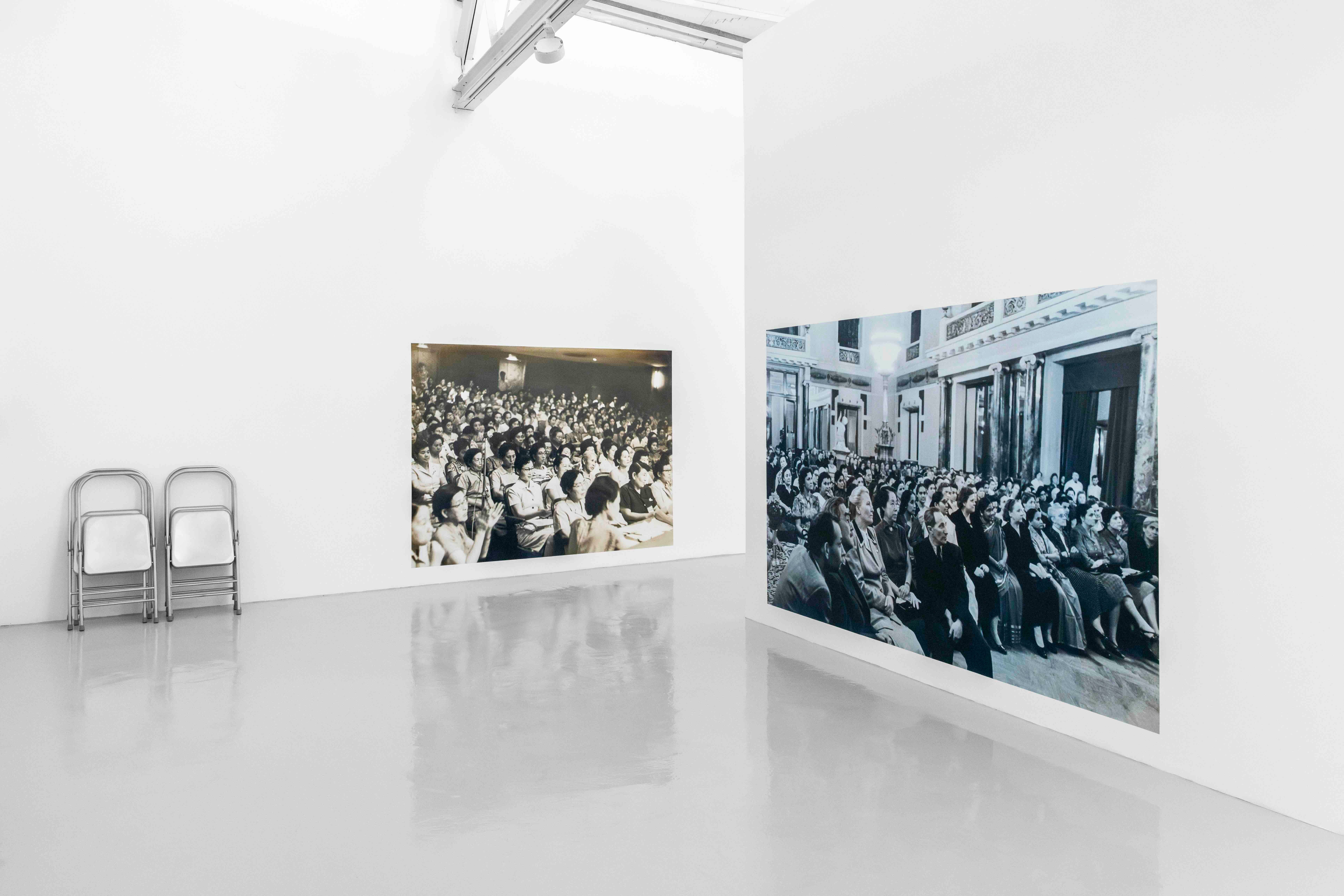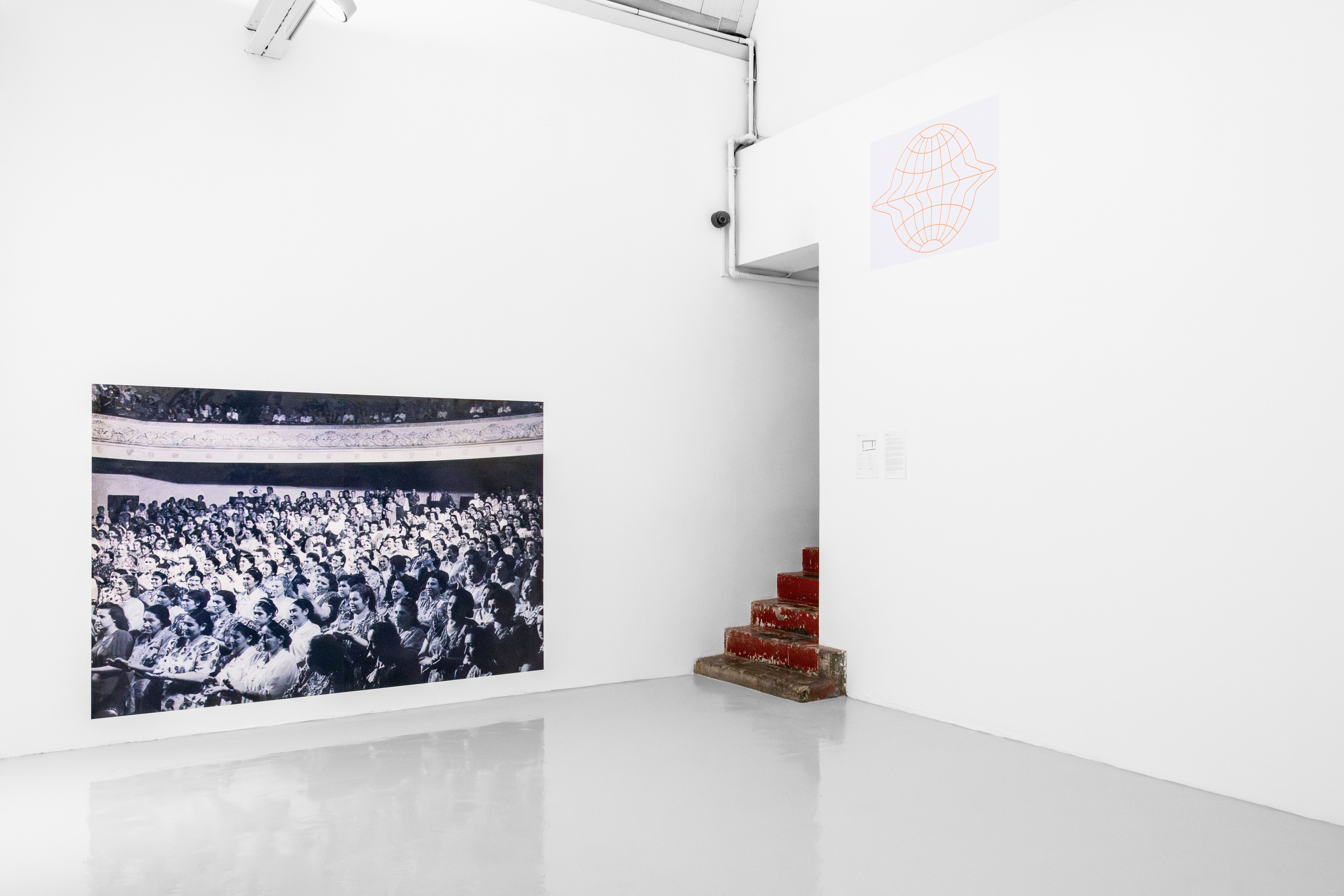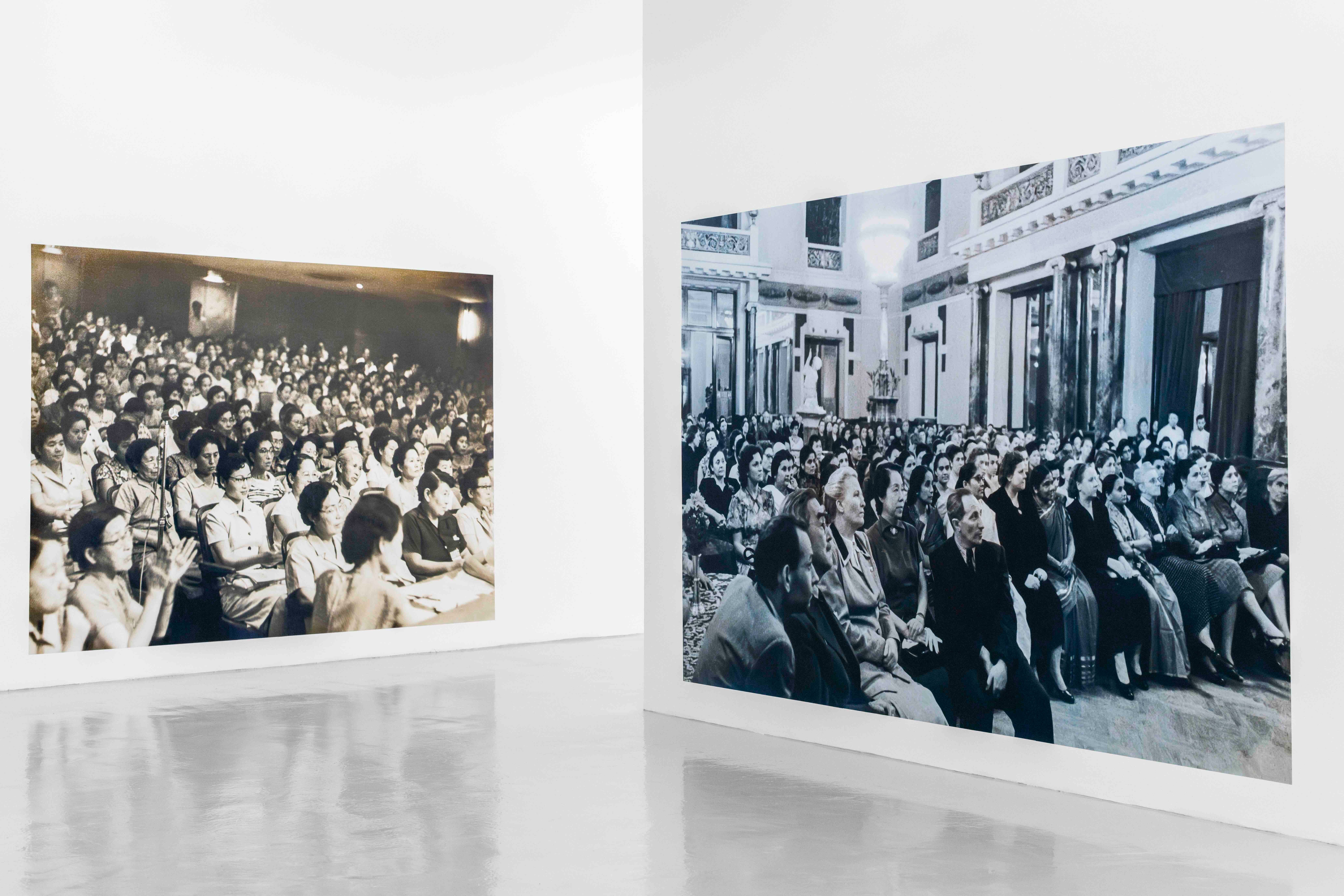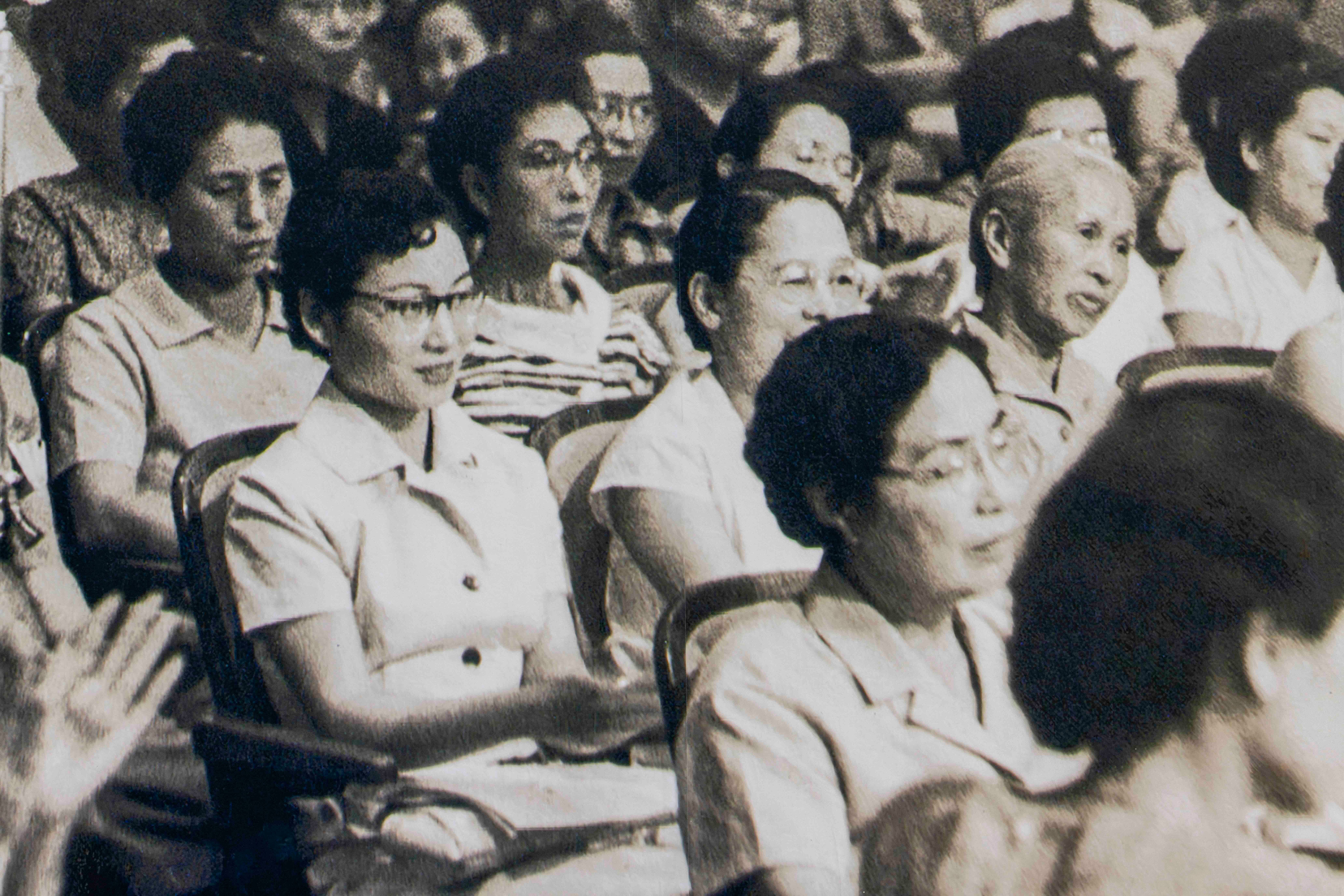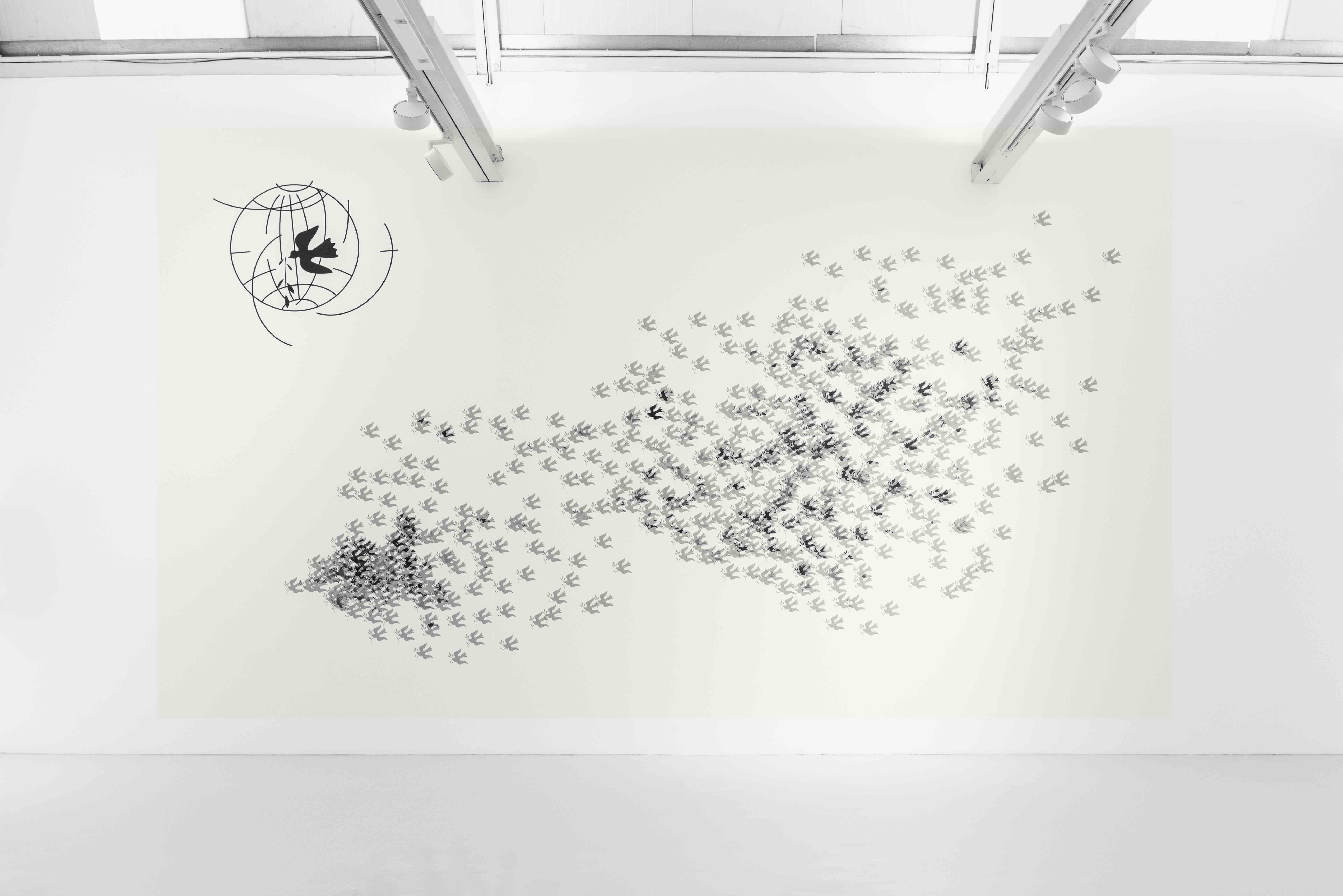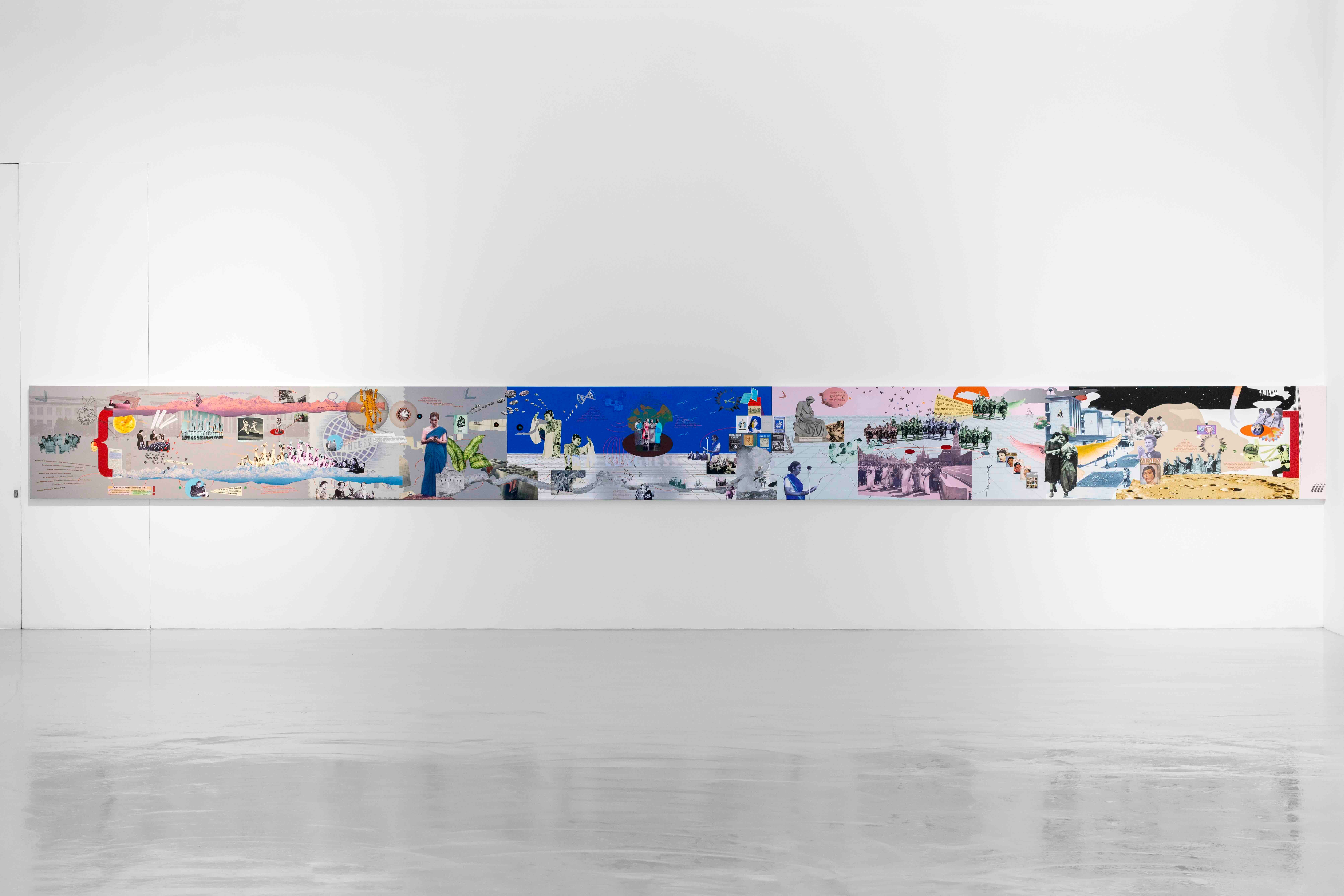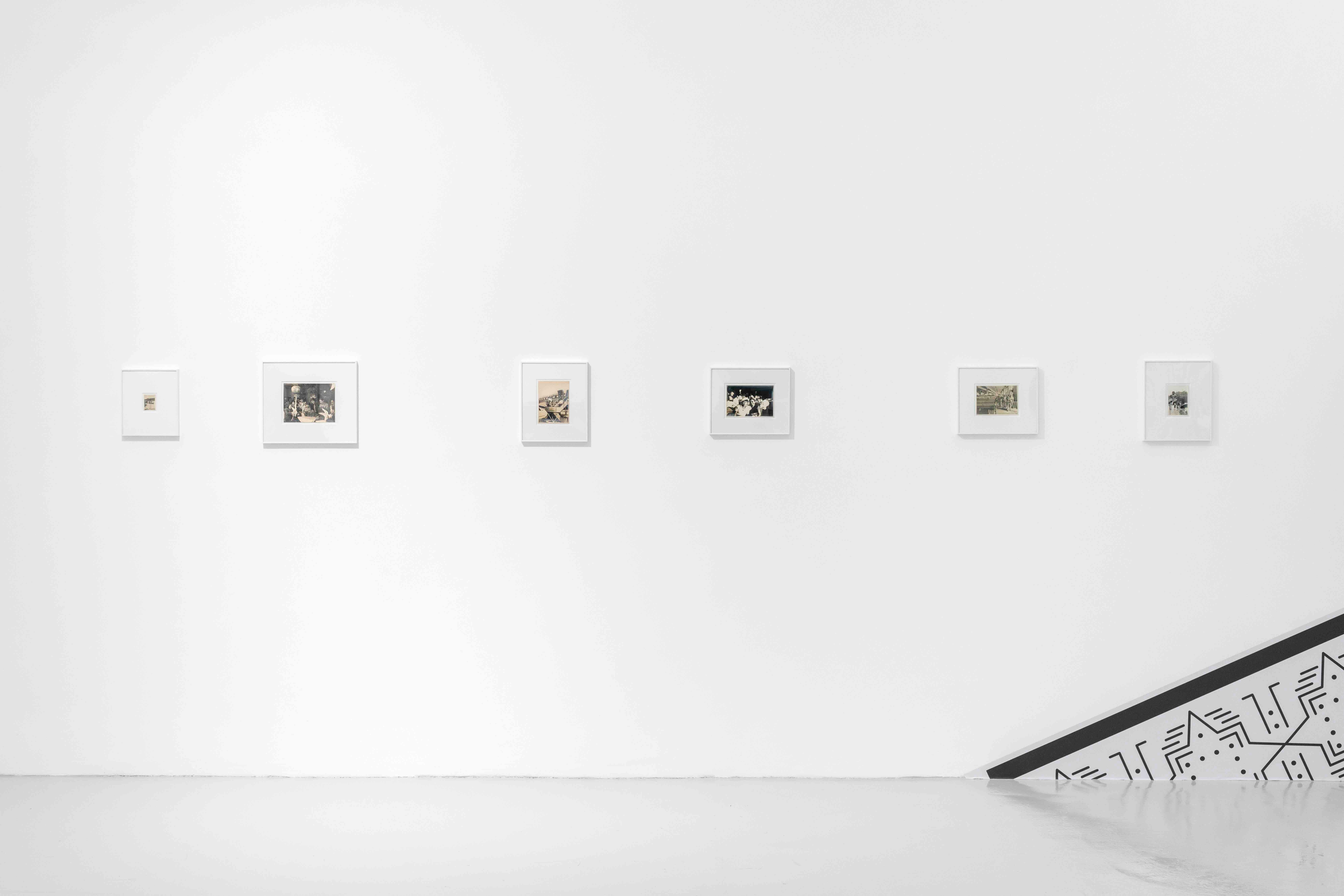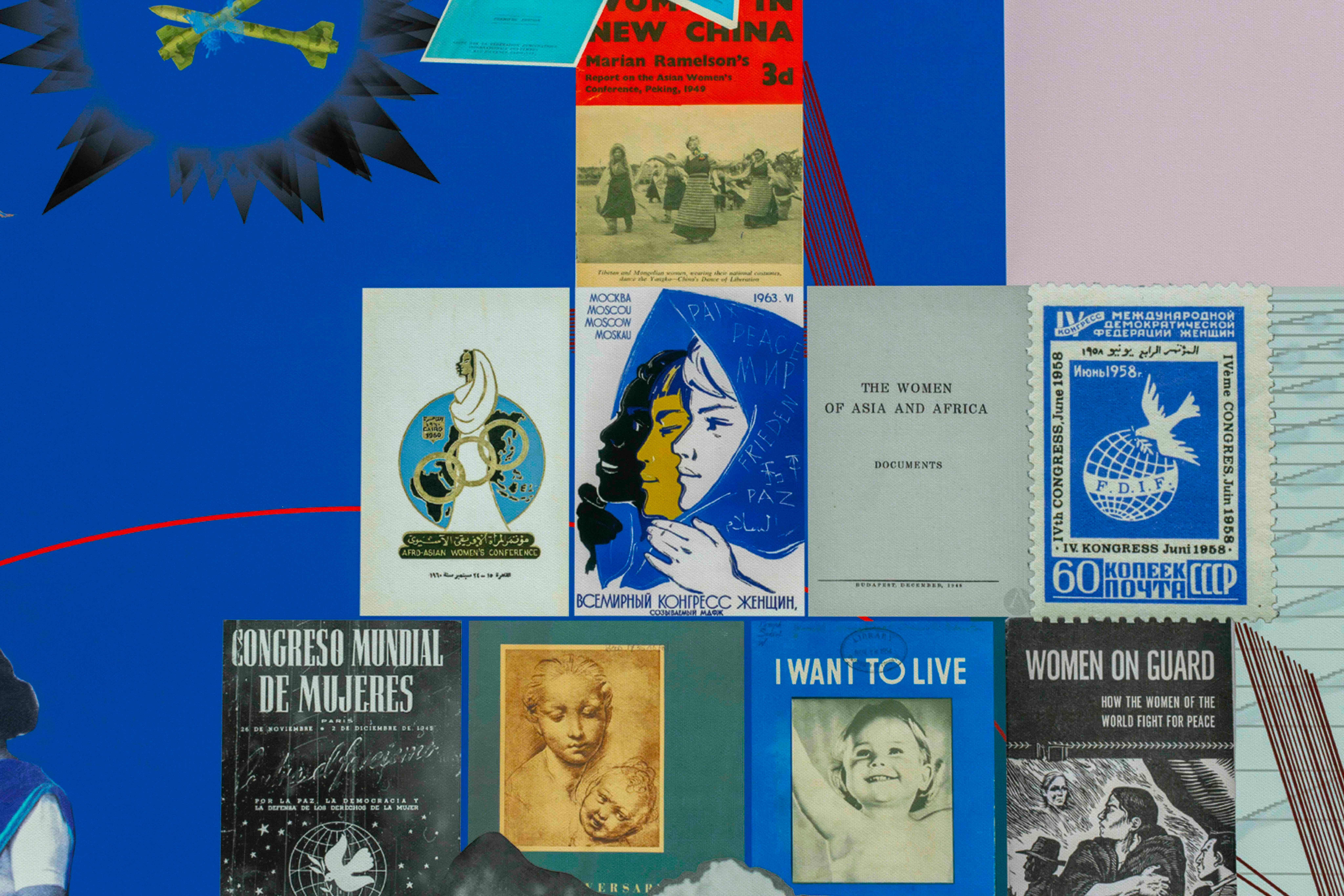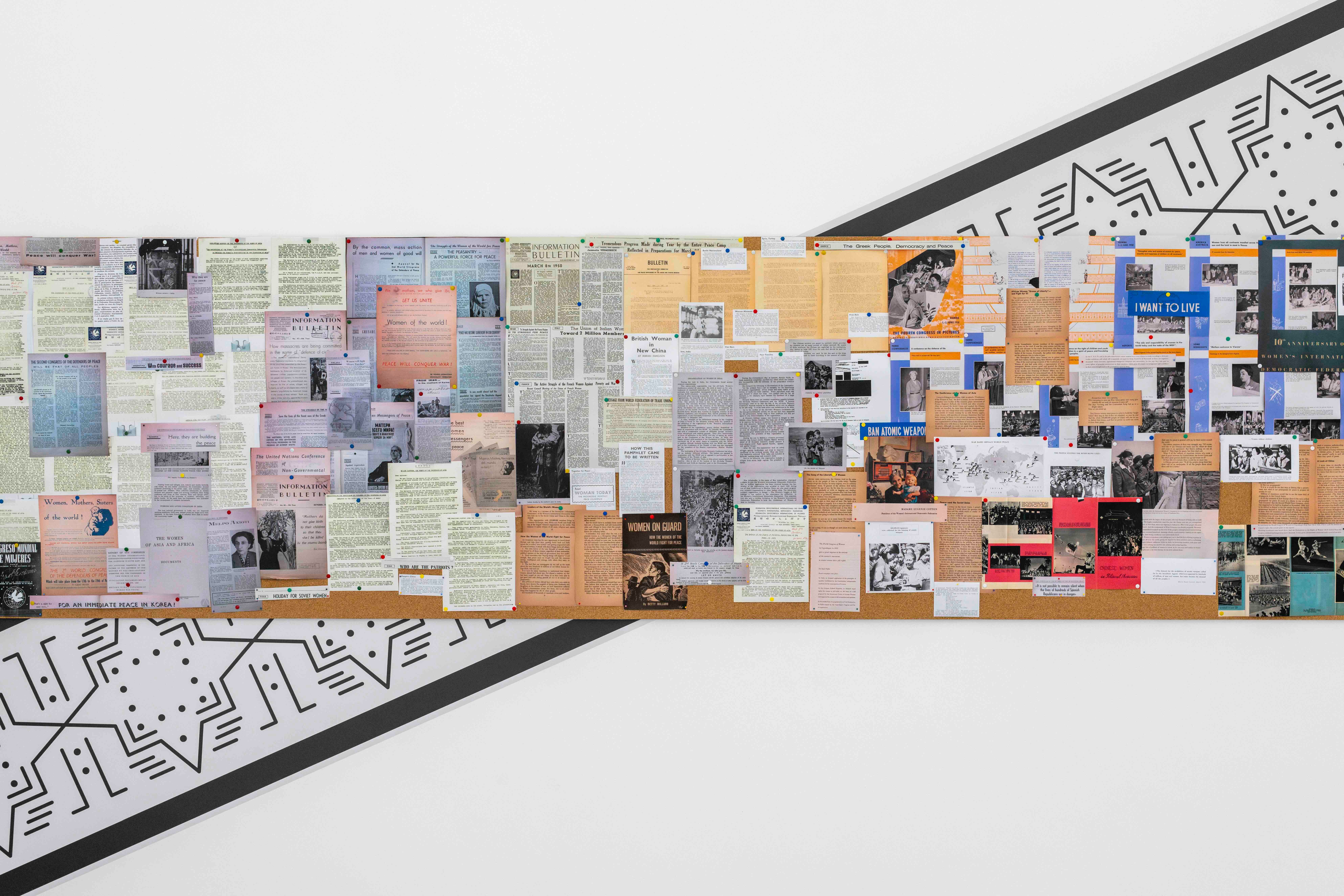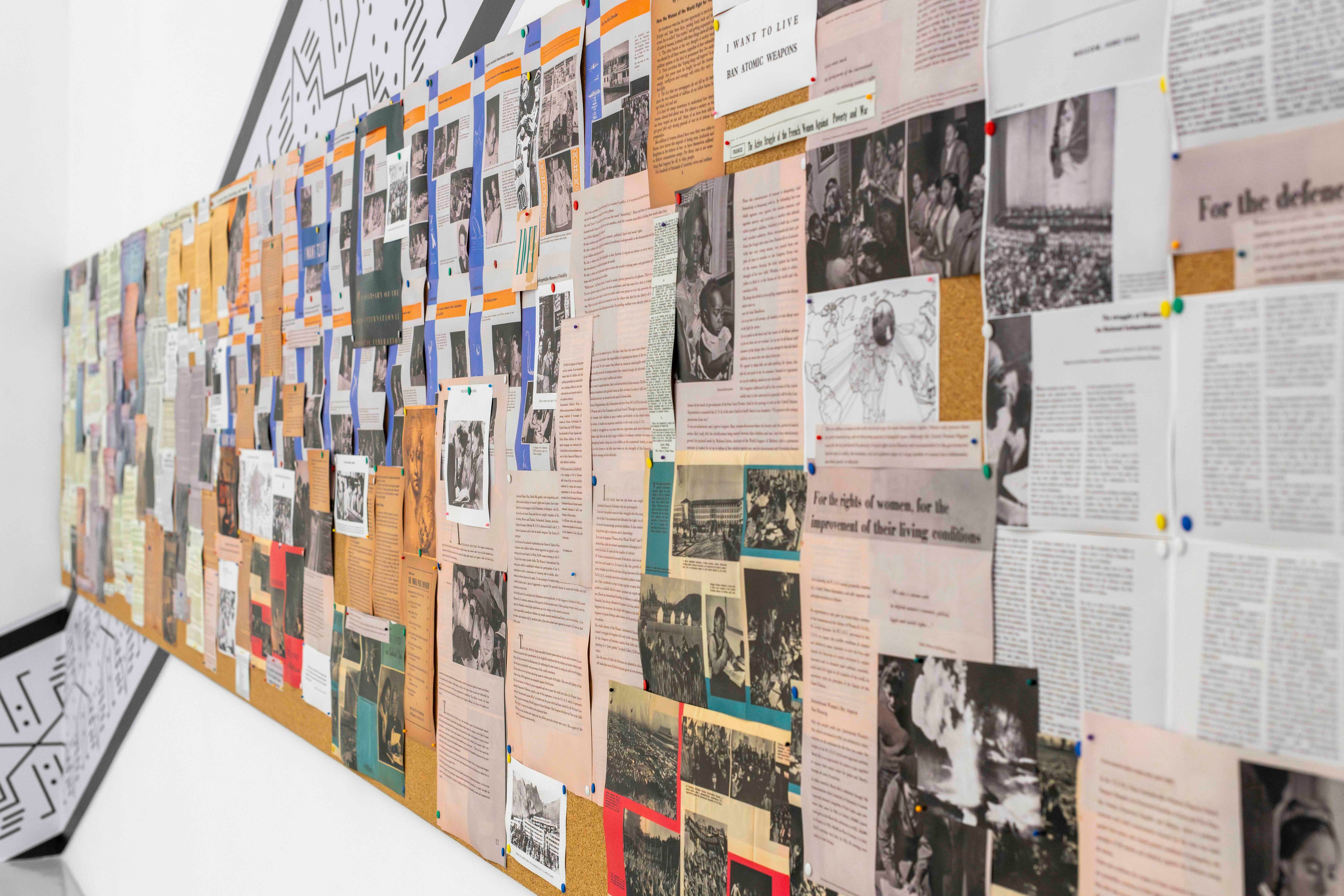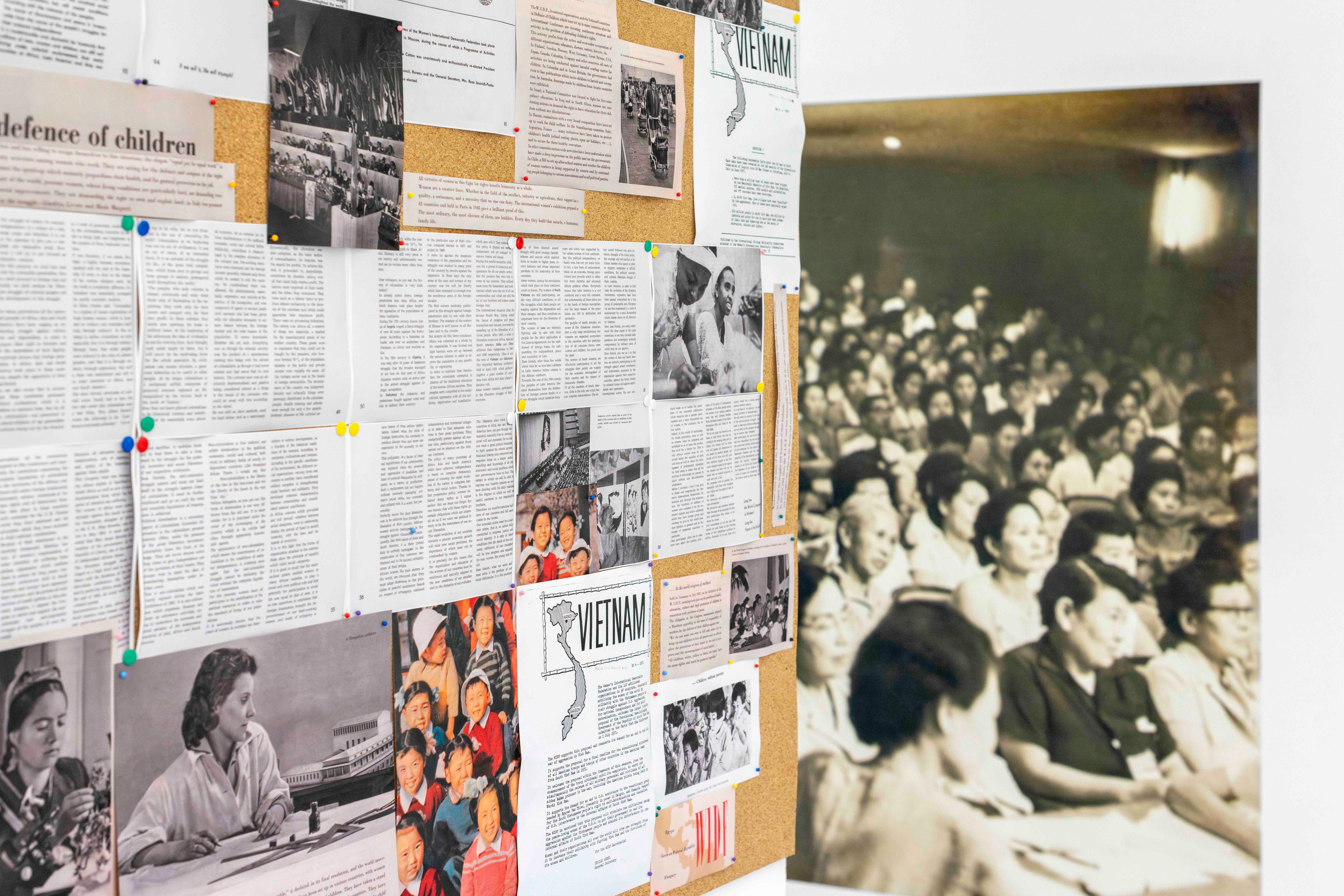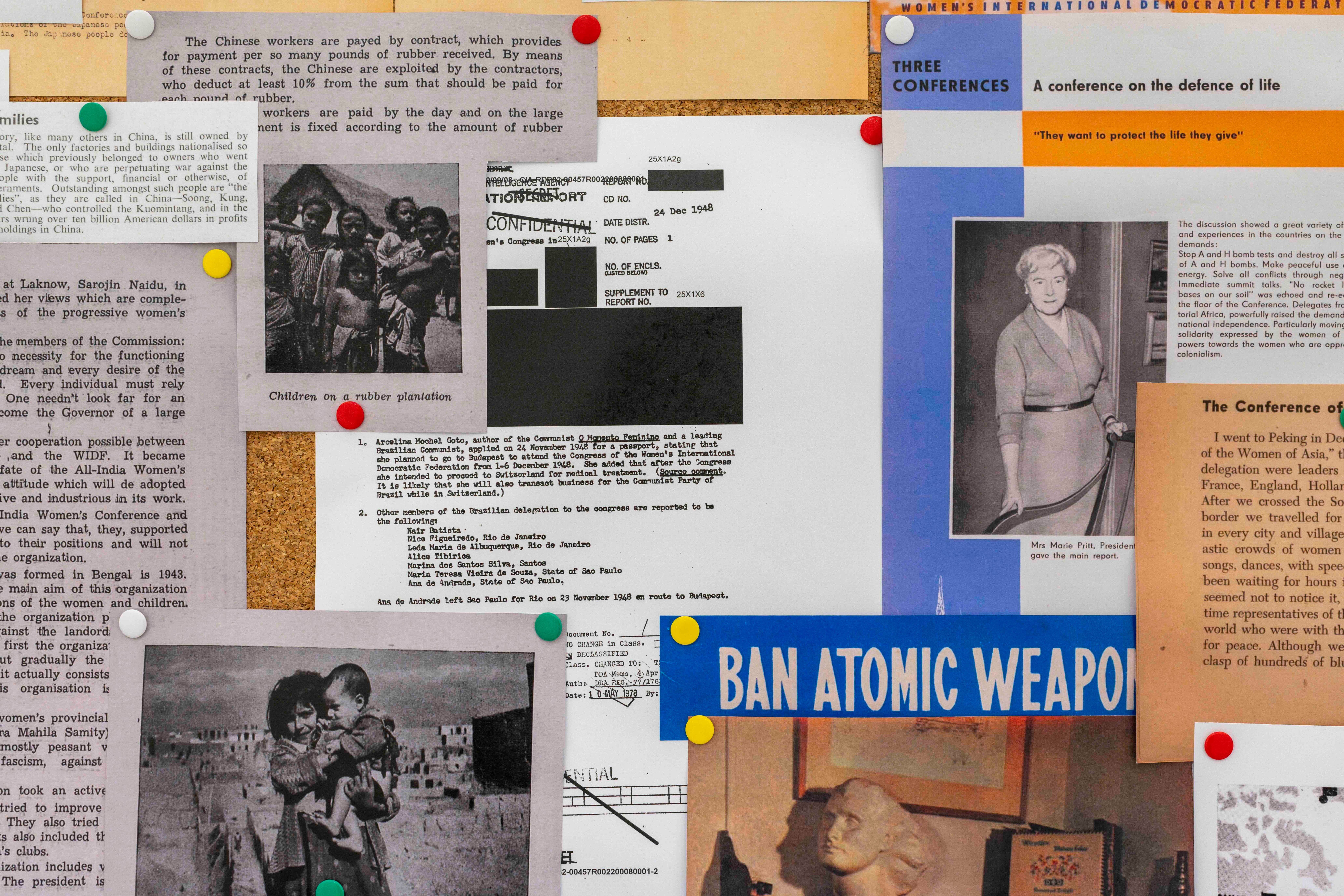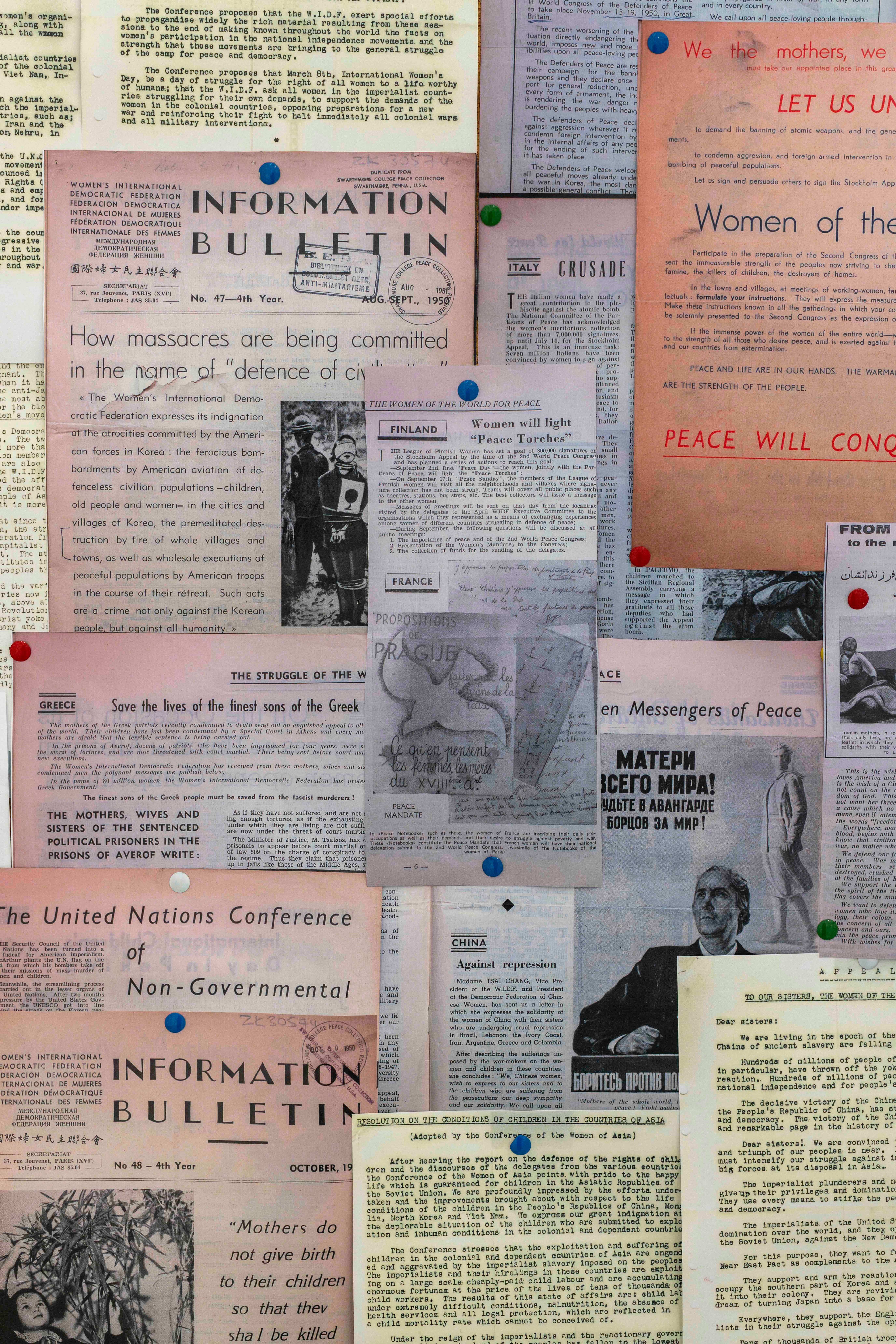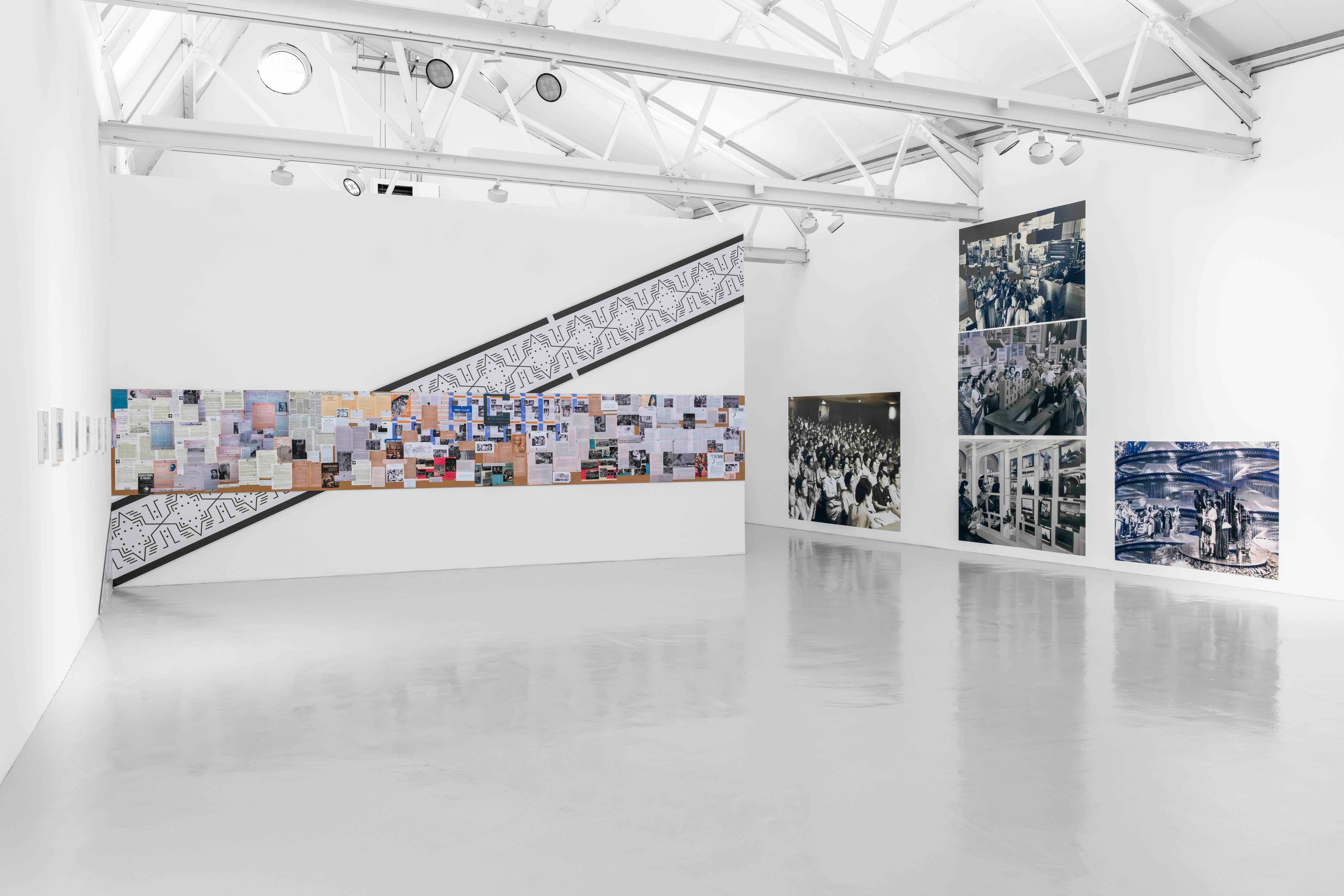We will move to the land of birds as a flock of previous humans takes its title from Mahmoud Darwish’s poem The ‘Red Indian’s’ Penultimate Speech to the White Man translated from Arabic by Fady Joudah in 1992.
The exhibition makes public moments from ongoing research undertaken by The Otolith Group into the tactics and the strategies of anti-imperialist internationalism deployed by the Women’s International Democratic Federation or WIDF at the height of the Global Cold War from 1945 until 1963.
Although the Women’s International Democratic Federation continues into the present from its Secretariat in Sao Paulo, We will move to the land of birds as a flock of previous humans focuses on what Elizabeth B Armstrong calls the 'political reproduction' of bulletins, periodicals, pamphlets, photographs and illustrations produced by the WIDF for its conferences and congresses from 1945 to 1963.
We will move to the land of birds as a flock of previous humans dramatises the declarations, resolutions, appeals, emblems, slogans and statements printed and distributed by the WIDF from its founding Congress in Paris in November 1945, continuing to the Conference of the Women of Asia in Beijing in December 1949 and concluding with the World Congress of Women in Moscow in June 1963.
From the panorama of We become an ode opening its windows to be recited to the tinted, pinned and printed pages of look upon our land through the speech of stars to the murmuration of emblems entitled We will alight onto ourselves and return if we should awaken, the title for each new work comes from a line selected from a poem by Mahmoud Darwish: The Hoopoe, translated by Munir Akash and Carolyn Forche from the volume I See What I Want To See in 1990, The ‘Red Indian’s’ Penultimate Speech to the White Man from the volume Eleven Planets, translated from Arabic by Fady Joudah in 1992, and Counterpoint, from the volume Exile, translated by Fady Joudah in 2005.
We will move to the land of birds as a flock of previous humans brings together research conducted by the artists since 2010 into deinstitutionalised photographic archives of the Federation of Indian Women held by The Otolith Group with recent research undertaken at the website of the Sophia Smith Collection: Women’s History Archive at Smith College, Northampton, Massachusetts and the archives of Elizabeth B. Armstrong.
The Otolith Group wish to thank Elizabeth B. Armstrong and Jasmina Metwaly for her efforts in digital composition.
